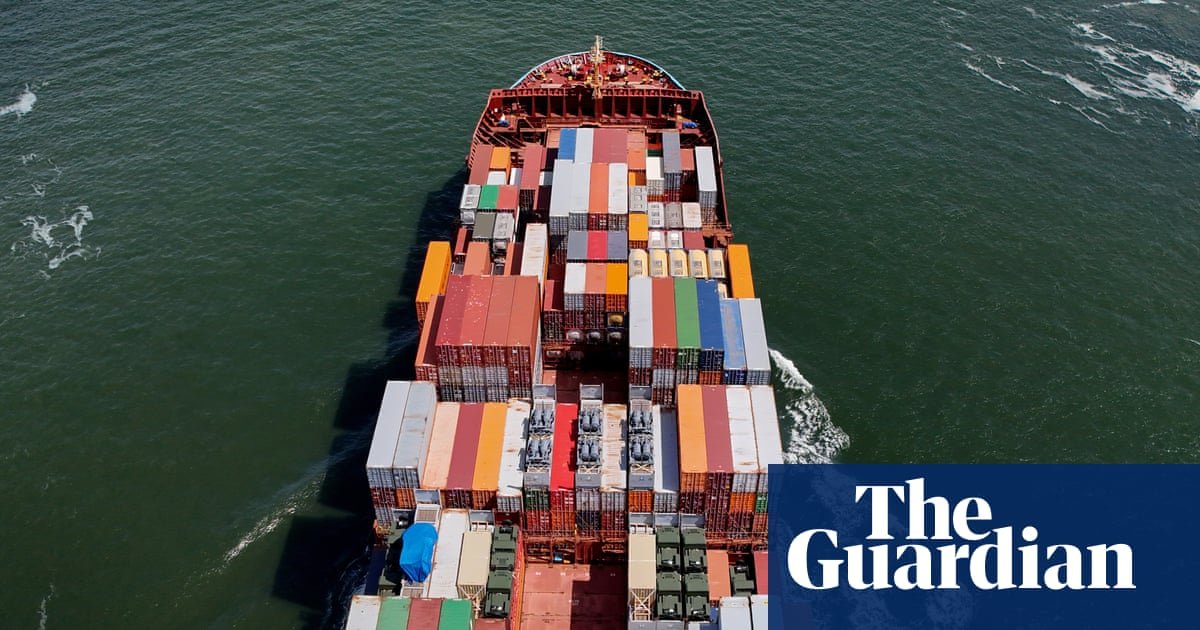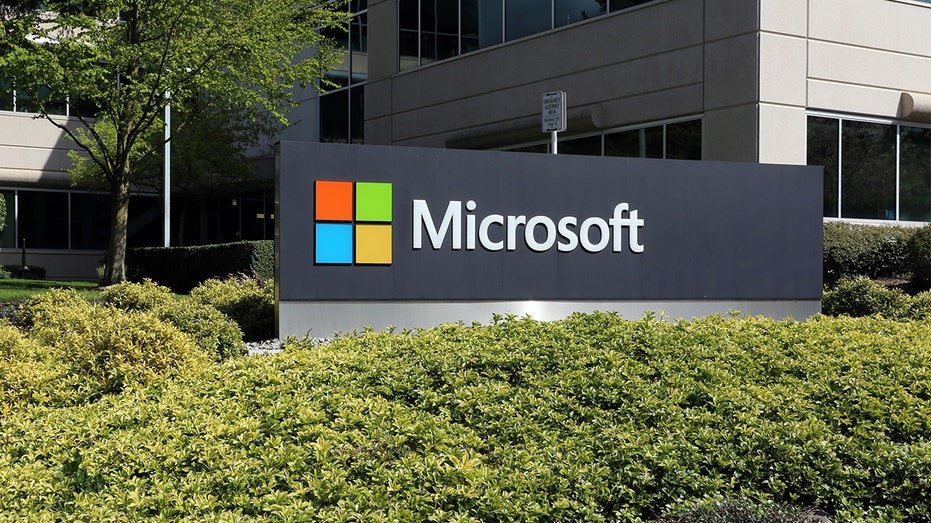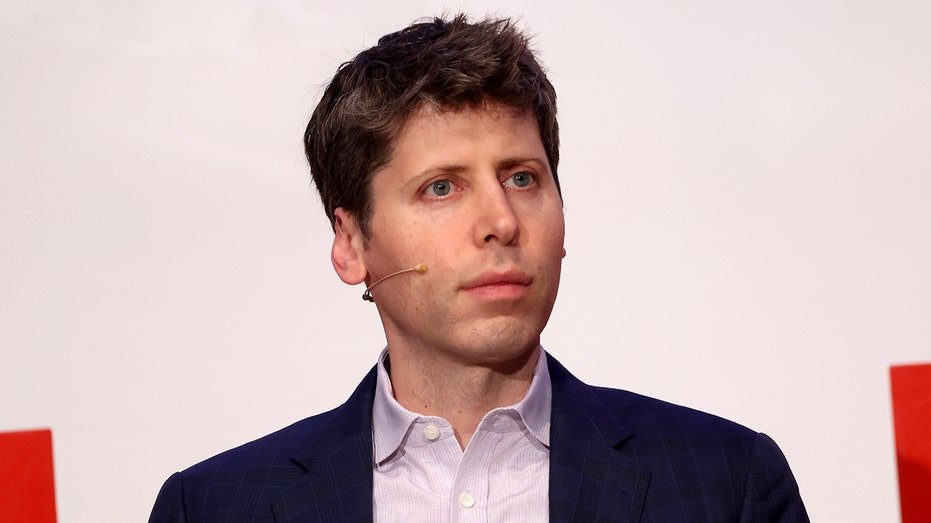Business
EU leaders split over tactics as deadline looms for Trump trade talks | International trade

The EU is entering a crunch week with only two days of talks left to secure a trade deal with Washinton to avert Donald Trump’s threatened 50% tariff on its imports into the US.
According to the US treasury secretary, Scott Bessent, on Friday, the negotiations – which continued over the weekend – are focussed on 15 to 18 agreements with important partners, while Trump warned of import tax rates of up to 70% on others.
The uncertainty created by Washington has sent shock waves through the global economy. Businesses have paused investment and the dollar posted its worst performance in 50 years in the first half of the year.
With the clock ticking down to Trump’s 9 July deadline, the European Commission remains uncertain how he will treat the bloc, threatening €1.6tn of transatlantic trade.
“Among member states, the big question will be whether we should reach a deal at all costs to avoid a trade war, or show muscle if the deal is not good enough,” one EU diplomat said.
The German chancellor, , has said he wants a quick UK-style deal to avert a full-scale trade war, while the French president, Emmanuel Macron, favours holding out for a better deal if a rushed deal is “imbalanced”.
Giving a flavour of the aggression shown towards the EU, which Trump once called “nastier than China”, Brussels’ trade commissioner, Maroš Šefčovič, was threatened last week with 17% tariffs on food imports during talks with senior members of the Trump administration including Bessent.
After announcing punitive “liberation day” tariffs on nearly all countries on 2 April, Trump paused them for 90 days a week later.
The US is now on the brink of launching a trade assault on dozens of countries as the 90-day period expires on Wednesday with only two deals in the bag – the UK and Vietnam.
This has raised questions about the EU’s ability to strike anything other than a political framework agreement to extend talks while a baseline 10% tariff and other levies on cars, steel and aluminium remain in place.
after newsletter promotion
As talks move into the final and most sensitive stage, industries across Europe are bracing themselves for fresh challenges, deal or no deal. They expect the cost of Trump’s presidency will be the minimum 10% on exports to the US, five times higher than the 2% average before he was elected last year.
That is because after months of threats of retaliatory tariffs on everything from Bourbon to Boeing aircraft, the EU conceded last week that a comprehensive trade deal was unattainable.
Instead they are aiming for an agreement in principle, or “framework deal” which will look more like the UK deal struck in May, which came into force at the end of last month.
Many EU diplomats initially dismissed the UK deal as thin and legally dubious under World Trade Organization rules, and held out hope that the bloc’s greater economic clout with €1.6tn of transatlantic trade compared with the UK’s £314bn (€363bn) would help it secure a better deal. But now they realise a bare-bones deal may be the best they can get.
Business
OpenAI nonprofit gains $100B stake while retaining control of AI company

NVIDIA CEO and co-founder Jensen Huang commends President Donald Trump’s A.I. agenda and outlines what the country’s job future will look like on ‘Special Report.’
Artificial intelligence giant OpenAI on Thursday announced its nonprofit parent will retain control of the company while also gaining an equity stake worth more than $100 billion.
The move will allow OpenAI to raise new capital while also making its nonprofit parent company “one of the most well-resourced philanthropic organizations in the world,” according to Bret Taylor, chairman of OpenAI’s board.
OPENAI TEAMS UP WITH WALMART TO TRAIN MILLIONS OF WORKERS IN ARTIFICIAL INTELLIGENCE
“This recapitalization would also enable us to raise the capital required to accomplish our mission — and ensure that as OpenAI’s [public benefit corporation] grows, so will the nonprofit’s resources, allowing us to bring it to historic levels of community impact,” Taylor said in a statement.
In this photo illustration, the OpenAI logo is seen displayed on a smartphone screen. (Thomas Fuller/SOPA Images/LightRocket via Getty Images / Getty Images)
OpenAI and Microsoft also said in a joint statement on Thursday that they signed a non-binding memorandum of understanding (MOU) to shape their next phase of partnership and are actively working to finalize a definitive deal. The companies said they are focused on building “the best” artificial intelligence tools that are also safe.
OPENAI CEO SAM ALTMAN WARNS OF AI FRAUD CRISIS ‘VERY SOON’
“OpenAI and Microsoft have signed a non-binding memorandum of understanding (MOU) for the next phase of our partnership,” the two companies said in a joint statement Thursday afternoon. “We are actively working to finalize contractual terms in a definitive agreement. Together, we remain focused on delivering the best AI tools for everyone, grounded in our shared commitment to safety.”

The Microsoft headquarters campus in Redmond, Washington. (iStock / iStock)
Microsoft has reportedly invested around $13 billion in the ChatGPT creator since 2019.
A MAJORITY OF SMALL BUSINESSES ARE USING ARTIFICIAL INTELLIGENCE
In May, OpenAI announced it was scuttling its plan to move the company away from a nonprofit structure to becoming a for-profit company. The ChatGPT-maker created a for-profit limited liability company (LLC), which it converted into a public benefit corporation that considers the interests of shareholders as well as OpenAI’s mission. The tech giant announced at the time that OpenAI’s nonprofit would have operational control over the public benefit corporation and would be a large shareholder in it.

Sam Altman, co-founder and CEO of OpenAI, speaks during a panel discussion titled “The Age of AI” at the Technical University of Berlin on February 07, 2025, in Berlin, Germany. (Sean Gallup/Getty Images / Getty Images)
OpenAI CEO Sam Altman, who prompted the company’s exploration of moving to a for-profit structure to make it easier for the company to raise the large amounts of money for investments he thinks will be needed to achieve artificial general intelligence (AGI), sent a letter to employees at the time explaining the decision and what it means for the company.
GET FOX BUSINESS ON THE GO BY CLICKING HERE
“OpenAI was founded as a nonprofit, is today a nonprofit that oversees and controls the for-profit, and going forward will remain a nonprofit that oversees and controls the for-profit. That will not change,” Altman wrote in May.
FOX Business’ Eric Revell contributed to this report.
Business
Microsoft to Spend Heavily on Own Chip Cluster for in-House AI Models

Microsoft is planning to make “significant investments” in its own AI chip cluster to become “self-sufficient in AI,” Microsoft AI CEO Mustafa Suleyman said during an all-employee town hall meeting on Thursday.
Microsoft’s AI strategy has so far largely relied on a partnership with OpenAI, although the companies appear to be drifting apart lately and they’re locked in tense contract renegotiations right now.
Suleyman’s comments suggest Microsoft wants to forge its own path in AI, while still supporting OpenAI with cloud-computing services.
“It’s critical that a company of our size, with the diversity of businesses that we have, that we are, you know, able to be self sufficient in AI, if we choose to,” Suleyman said.
Instead of relying solely on OpenAI, Microsoft is using open-source models, partnering with other AI developers, and building its own models, Suleyman said.
The software giant unveiled MAI-1-preview in late August. This is Microsoft AI’s first foundation model trained end-to-end by the company, and offers a glimpse of future offerings inside its Copilot service. This model ranks 24th among text models on LMArena, a widely followed leaderboard, so Microsoft has a lot of work to do still.
“We should have the capacity to build world class frontier models in-house of all sizes, but we should be very pragmatic and use other models where we need to,” Suleyman said.
Microsoft plans to make “significant” investments in its own AI chip cluster to help the company build its own models, he added.
Suleyman noted that MAI-1-preview was only trained on 15,000 Nvidia H100s, which he said was a “tiny cluster” in the grand scheme of things. Competing models from Google, Meta, and xAI were all trained on clusters that were six to 10 times larger in size, Suleyman said.
Microsoft has significantly benefited from its arrangement to access OpenAI’s intellectual property, both by selling it to customers through the Azure OpenAI service and creating its own products using OpenAI’s technology, like its AI assistant Copilot. Those terms are under renegotiation now that OpenAI needs Microsoft’s blessing for a corporate restructuring.
Microsoft CEO Satya Nadella during the town hall reassured employees that the company still benefits from the partnership.
“We have a very good partnership with OpenAI. We’re very excited to continue to work with them, support them. Remember, OpenAI supplies to us. We supply to them. So they’re each other’s customers. We have a commercial partnership. We are investors,” Nadella said. “And at the same time, we were very clear that we also want to build our own capabilities.”
Have a tip? Contact this reporter via email at astewart@businessinsider.com or Signal at +1-425-344-8242. Use a personal email address and a nonwork device; here’s our guide to sharing information securely.
Business
Spain’s digital business school ISDI & Microsoft bet on AI in executive MBAs •

Keep up to Date with Latin American VC, Startups News
At a time when artificial intelligence (AI) is redefining work, ISDI, Spain’s digital business school, and Microsoft have formed an alliance to incorporate the real-world use of generative AI into executive training.
According to Microsoft’s Workplace Trends Report, 50% of executives in countries like Spain believe that training their teams in the use of AI will be key in the next five years.
For this reason, ISDI says it is seeking to connect theory and practice in an academic environment that adapts to the challenges of digital transformation.
Microsoft, for its part, brings its technological expertise so that artificial intelligence becomes a tangible, competitive resource for MBA grads.
“We want to train complete professionals, capable of leading business transformation in a context marked by AI,” said Basola Vallés, Executive Director of ISDI, through a press release.
The business school has faculty and alumni from around the world, including Latin America, and has an international campus in Mexico.
Creating AI Agents
The module, titled Crea tu Agente IA (Create your AI Agent), unfolds over five milestones in the master’s degree: from agent activation in Microsoft’s Copilot Studio, to application in real projects, simulation of strategic scenarios and career development.
Upon completion, each participant will have a trained and operational AI agent ready to accompany the student beyond the classroom. This practical approach contrasts with theory-focused programs by integrating AI into the day-to-day work life.

With this initiative, the Executive MBA in Business and Technology (MIB) is positioned as the first Executive MBA in Spain to structurally integrate business, technology, artificial intelligence and human development, according to the university.
Paco Salcedo, president of Microsoft Spain, added: “Our technology is designed for students to turn AI into a real advantage for their organizations”.
The proposal is reinforced with a project linked to business challenges and with an employability component.
A study by LinkedIn and Microsoft reveals that professionals who mention AI in their profiles are 17% more likely to be considered in selection processes.
The impact of the program has already been recognized by several media, which places it amongst the most influential executive master’s programs in Spain.
MIB graduates record an average salary increase of 38% in the year after graduation and 70% job mobility, according to figures shared with Contxto that reflect how the combination of business, technology and now generative AI can transform a career path.
According to a report published by Intel and analyst firm IDC, just 14% of Latin American companies have adopted AI agents in their work processes, putting the region in need of adapting to today’s challenges.
This trend of MBA programs that prioritize the use of generative AI could help to motivate future business leaders in the region and will hopefully boost the adoption figures of this technology in the coming years.
Keep up to Date with Latin American VC, Startups News
-

 Business2 weeks ago
Business2 weeks agoThe Guardian view on Trump and the Fed: independence is no substitute for accountability | Editorial
-
Tools & Platforms1 month ago
Building Trust in Military AI Starts with Opening the Black Box – War on the Rocks
-

 Ethics & Policy2 months ago
Ethics & Policy2 months agoSDAIA Supports Saudi Arabia’s Leadership in Shaping Global AI Ethics, Policy, and Research – وكالة الأنباء السعودية
-

 Events & Conferences4 months ago
Events & Conferences4 months agoJourney to 1000 models: Scaling Instagram’s recommendation system
-

 Jobs & Careers2 months ago
Jobs & Careers2 months agoMumbai-based Perplexity Alternative Has 60k+ Users Without Funding
-

 Podcasts & Talks2 months ago
Podcasts & Talks2 months agoHappy 4th of July! 🎆 Made with Veo 3 in Gemini
-

 Education2 months ago
Education2 months agoVEX Robotics launches AI-powered classroom robotics system
-

 Education2 months ago
Education2 months agoMacron says UK and France have duty to tackle illegal migration ‘with humanity, solidarity and firmness’ – UK politics live | Politics
-

 Funding & Business2 months ago
Funding & Business2 months agoKayak and Expedia race to build AI travel agents that turn social posts into itineraries
-

 Podcasts & Talks2 months ago
Podcasts & Talks2 months agoOpenAI 🤝 @teamganassi


